News

Britta Carlson leaves her role at the DFB
Britta Carlson has left her role as assistant coach of the Germany Women’s national team, mutually agreeing to dissolve her contract with the DFB in order to take up a position as head coach of the 1. FC Köln women’s team in the Frauen-Bundesliga.
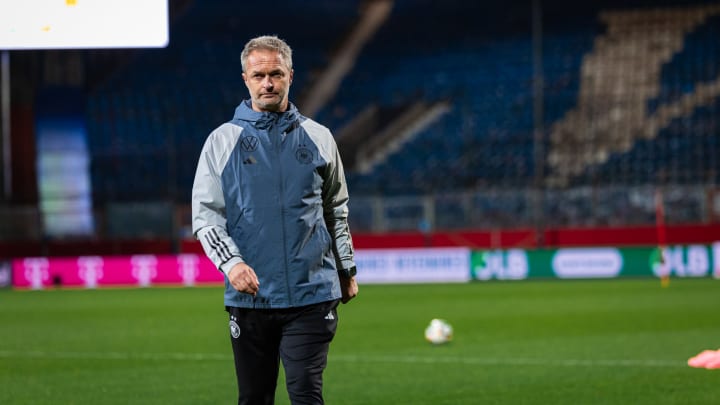
Wück: “Gain confidence by winning games”
Christian Wück has been coach of Germany’s women’s team since the start of August. At the end of 2024, the 51-year-old spoke to DFB.de about his first few months in charge, his goals and next year’s European Championship in Switzerland.
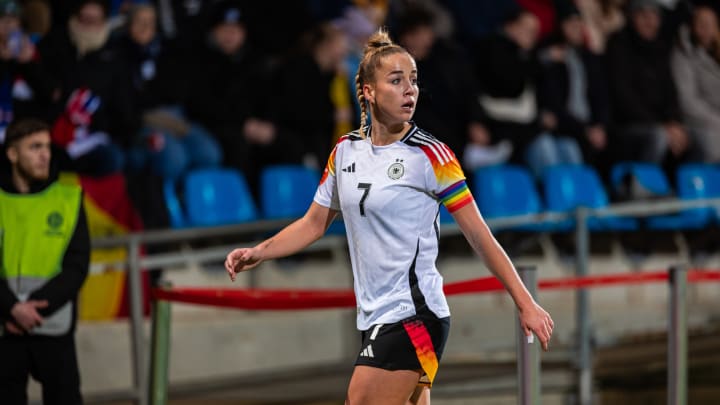
Giulia Gwinn: “Moments we’ll never forget”
The fans voted for Giulia Gwinn as the Germany Women’s Player of the Year for 2024. The FC Bayern defender spoke to DFB.de about the last 12 months.
.jpg%3F1734371659)
Germany to face Denmark, Sweden and Poland at 2025 Women's EUROs
The Germany women's national team will come up against Denmark, Sweden and Poland in Group C at the 2025 Women's EUROs in Switzerland next summer.
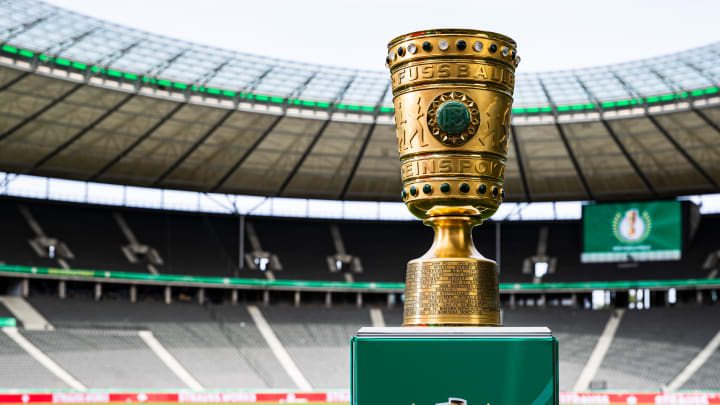
Rhine derby in quarter-finals: Leverkusen to take on Köln
Germany handball player Julian Köster conducted the draw for this season’s DFB-Pokal clashes at the German Football Museum in Dortmund. Alongside DFB vice-president Peter Frymuth, the Olympic silver medallist drew four mouth-watering clashes.

Germany’s World Cup qualifying paths outlined
The Germany national team know their two possible paths for the European Qualifiers for the 2026 FIFA World Cup following Friday’s draw in Zurich, with the opponents depending on their UEFA Nations League quarter-final result against Italy.
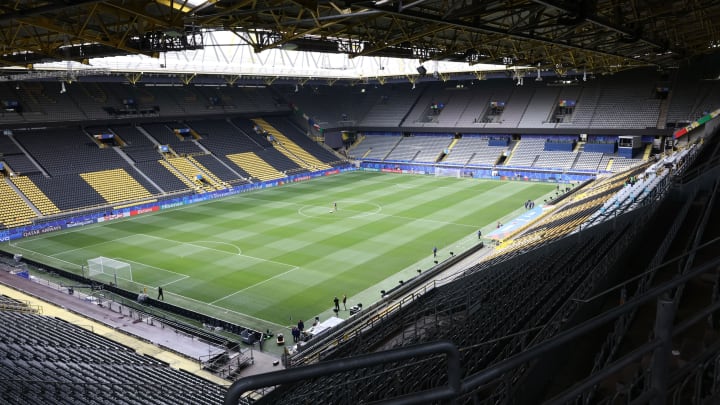
UEFA Nations League quarter-final against Italy to take place in Dortmund
The Germany national team will play the second leg of their UEFA Nations League quarter-final against Italy on 23rd March 2025 in Dortmund. The decision was made by the supervisory board and shareholders’ collective of DFB GmbH & Co. KG.
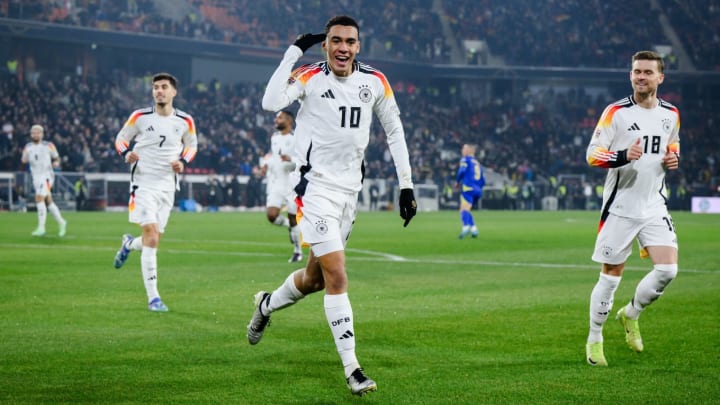
Jamal Musiala named Germany Men’s Player of the Year for 2024
With an impressive 56% of the vote, attacker Jamal Musiala has been named as Germany’s Player of the Year for 2024 by the fans.
Unsere Partner
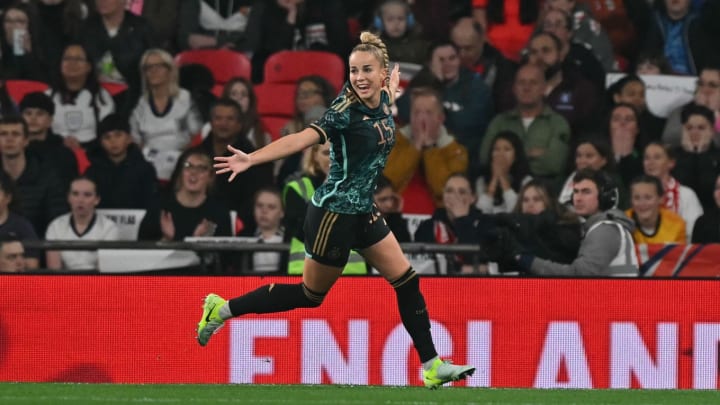
Giulia Gwinn is the Germany Women’s Player of the Year
The fans have spoken! Giulia Gwinn has been named the Germany Women’s Player of the Year 2024. It’s the first time that the 25-year-old FC Bayern player has taken the accolade, claiming a commanding 59 percent of the vote.
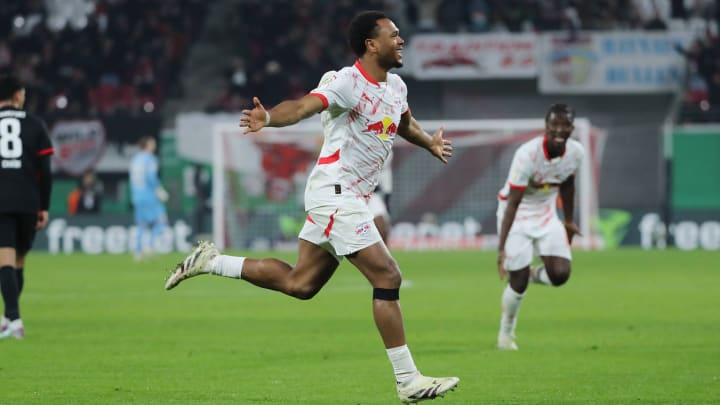
Openda fires Leipzig into the quarter-finals
RB Leipzig convincingly booked their place in the DFB-Pokal quarter-finals with a dominant 3-0 victory over Eintracht Frankfurt. FC Augsburg also secured a spot in the last eight, defeating 2. Bundesliga side Karlsruher SC 5-4 on penalties.
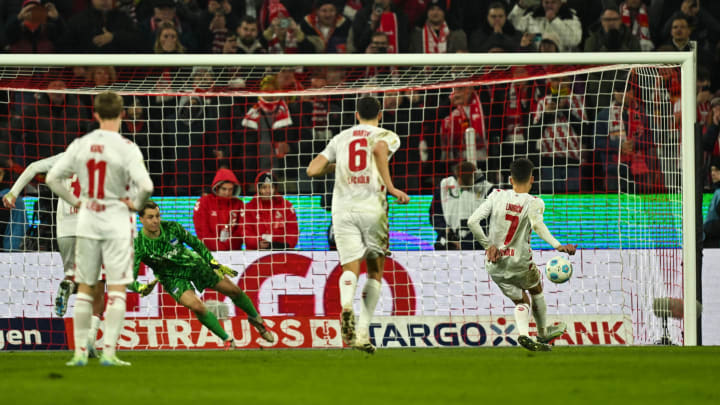
Cologne need extra time to see off 10-man Hertha
VfL Wolfsburg are through to the quarter-finals of the DFB-Pokal after a commanding 3-0 victory over TSG Hoffenheim. Elsewhere, 1. FC Köln needed extra time to see off fellow 2. Bundesliga side Hertha BSC.
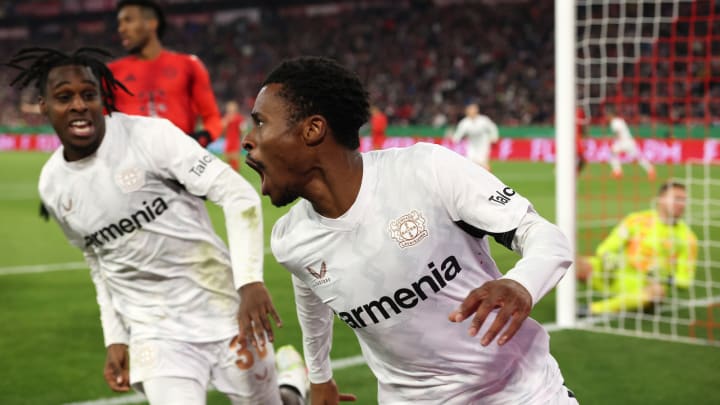
Leverkusen win 1-0 in Munich to reach quarterfinals
Defending DFB-Pokal champions Bayer Leverkusen won 1-0 against Bayern München, who were down to ten men after Manuel Neuer was sent off, to progress through to the quarterfinals thanks to Nathan Tella's deciding goal.
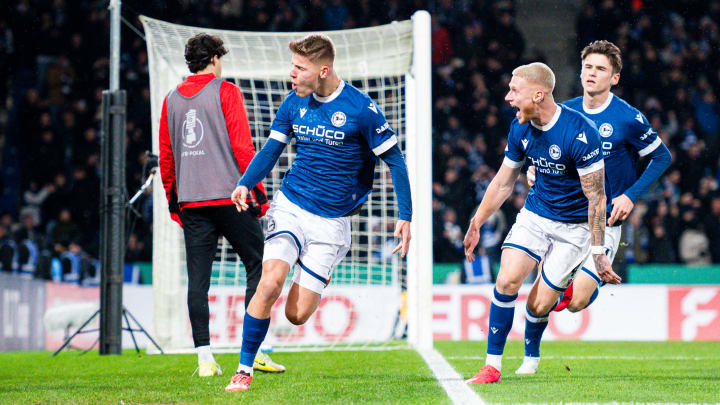
Bielefeld stun Freiburg to advance
Arminia Bielefeld and VfB Stuttgart became the first two sides to advance to the quarterfinals of the DFB-Pokal on Tuesday evening.
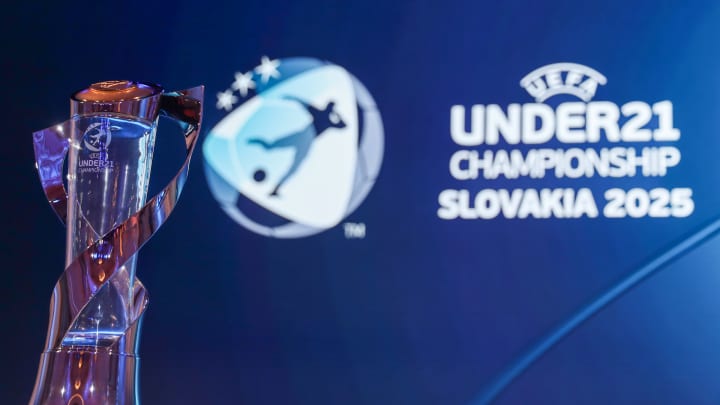
U21s to face Czechia, England and Slovenia in group stage of U21 EUROs
The group stage draw ahead of next summer's U21 EUROS in Slovakia was conducted in the nation's capital, Bratislava, on Tuesday evening. The Germany U21s will come up against Czechia, England and Slovenia in Group B.
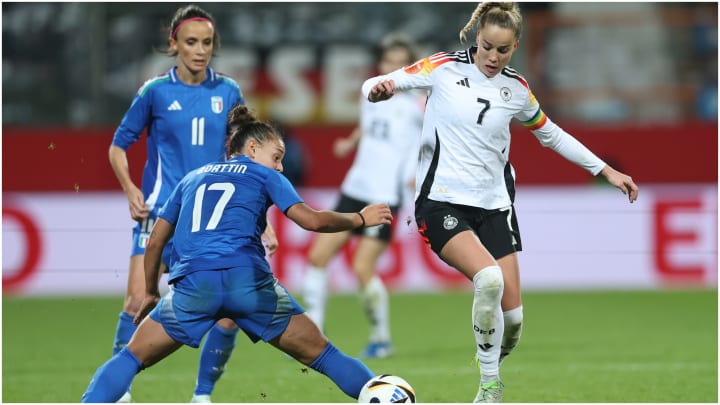
Germany lose 2-1 to Italy in their final home match of the year
The Germany Women’s national team lost their final fixture of the calendar year as they were defeated 2-1 by Italy in Bochum. Felicitas Rauch netted for Germany (51’), while Agnese Bonfantini (11’) and Sofia Cantore scored the goals for Italy.
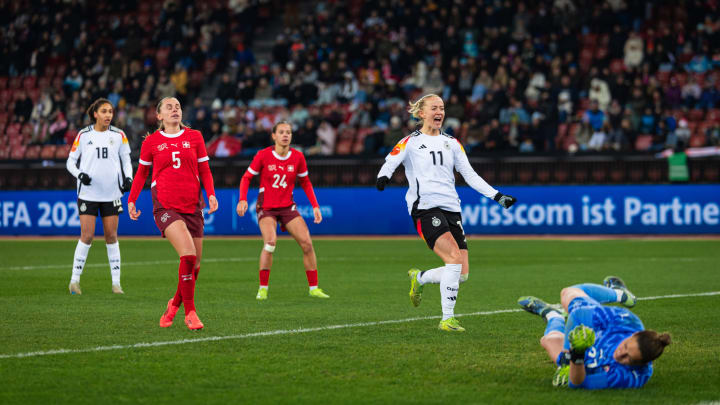
Freigang and Schüller net twice in 6-0 win over Switzerland
The Germany women's national team won 6-0 against Switzerland in Zurich, in their final away game of the year. Nüsken, Freigang, Schüller and Zicai all got on the scoresheet for head coach Christian Wück's side.
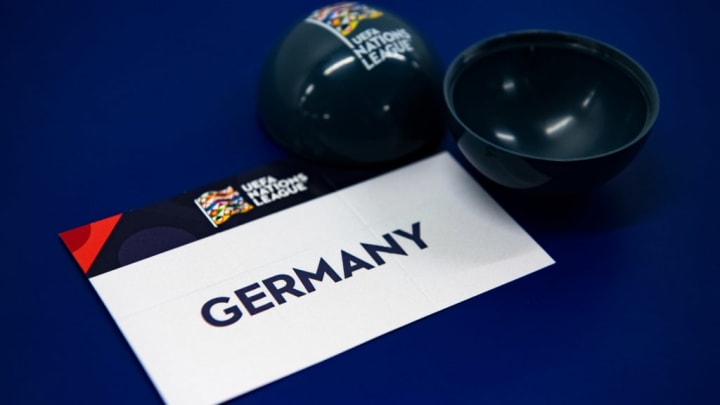
Germany drawn against Italy for Nations League quarter-final
The Germany national team have been drawn against Italy for the quarter-final stage of the UEFA Nations League. Should Julian Nagelsmann’s side claim victory, they would then progress to a semi-final clash against either Denmark or Portugal.

Andrich: "2024 was a good year for us"
DFB.de has all the match reaction after the Germany national team recorded a draw in their final international fixture of the calendar year 2024. Julian Nagelsmann’s side drew 1-1 with Hungary, as Felix Nmecha scored his first international goal.
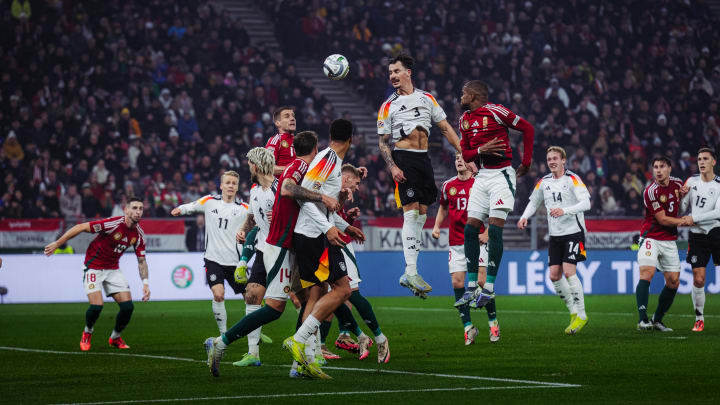
Germany denied victory by last minute penalty
The Germany national team secured their unbeaten status in the group stage of the UEFA Nations League. In Budapest, national head coach Julian Nagelsmann’s side drew 1-1 with hosts Hungary, while Felix Nmecha netted his first international goal.
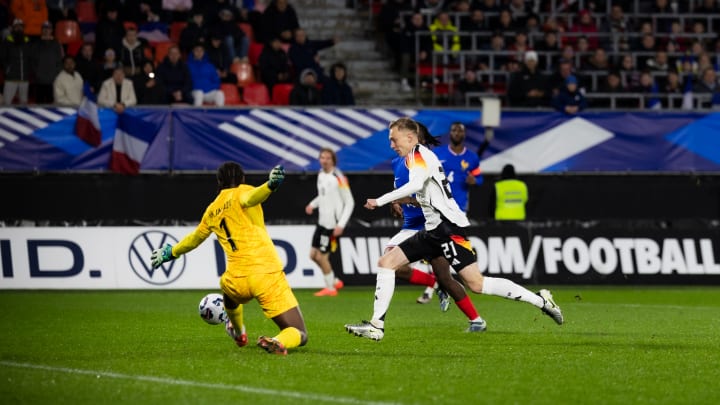
Beier scores brace in France draw
After taking a 2-0 lead through a Maximilian Beier double, France U21s hit back with two goals, including one in added time, to deny Antonio Di Salvo's side victory. That said, Germany U21s remained undefeated in their final game of 2024.
.png%3F1732020823)
Wück calls up Zicai and Şehitler for the first time
Germany women's head coach Christian Wück has announced his squad for the final two internationals of the year. Included for the first time in his 23-player squad are 19-year-old Cora Zicai (SC Freiburg) and 17-year-old Alara Şehitler (FC Bayern Münc
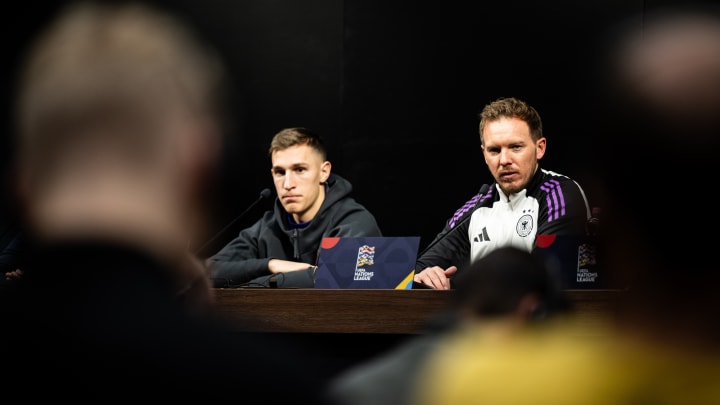
Nagelsmann set to make “several changes” for Hungary
Germany play their final Nations League group game on Tuesday night (20:45 CET) against Hungary in Budapest.
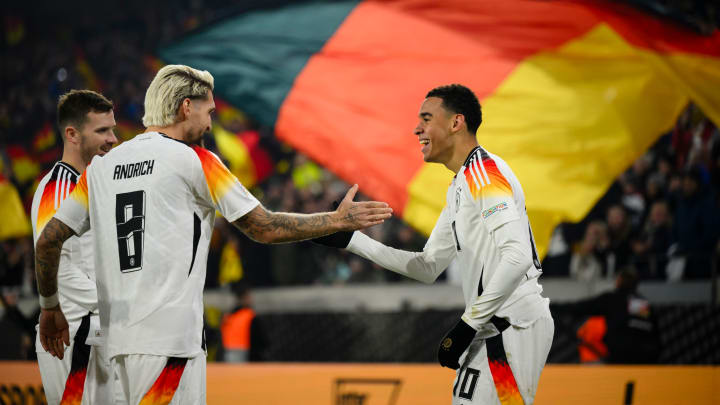
Germany secure top spot with flurry of goals
Having already secured their passage into the Nations League quarter-finals, the Germany national team made sure of top spot in Group 3 by defeating Bosnia and Herzegovina 7-0 in Freiburg.
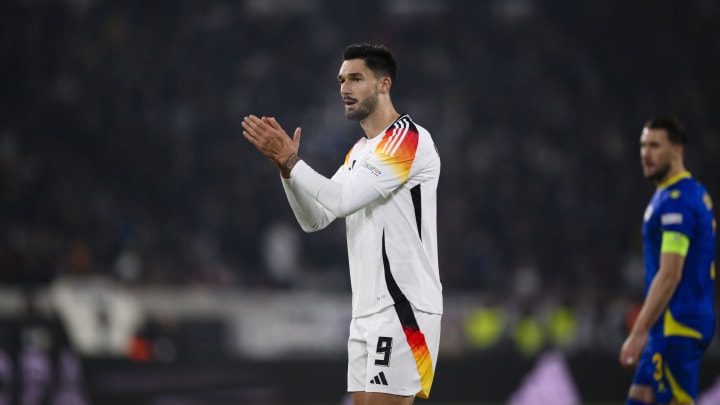
Kleindienst: “A dream come true”
Germany’s resounding 7-0 win over Bosnia and Herzegovina in Freiburg on Saturday night ensured they won their Nations League group. DFB.de has collected the post-match reaction.
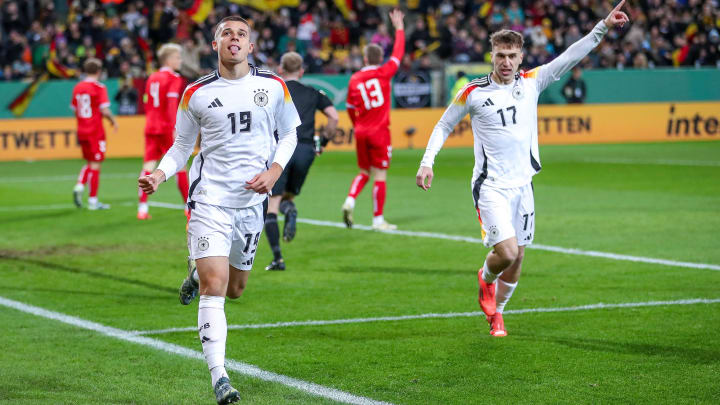
Germany U21s win 3-0 against Denmark
Germany U21s celebrated a 3-0 win in a friendly against Denmark U21s in Aachen. Tresoldi, Brown and Moukoko scored for Antonio Di Salvo's side.
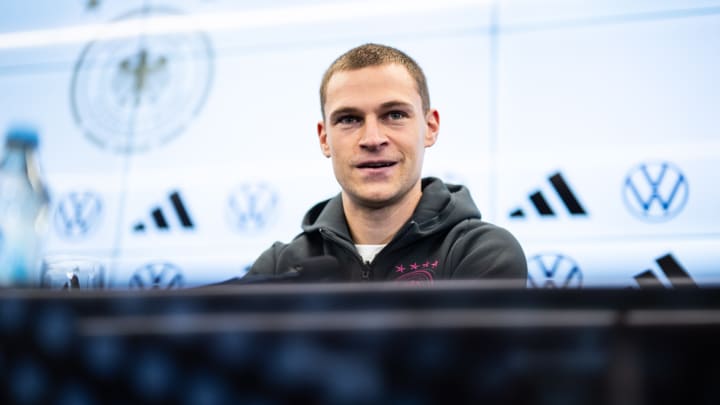
Kimmich: "The Austria game was a definite low point"
Ahead of the Nations League double-header against Bosnia and Herzegovina Hungary, FC Bayern München midfielder and new Germany national team captain Joshua Kimmich spoke to DFB.de regarding the development of the squad.

Stiller pulls out of Germany squad
Angelo Stiller will miss Germany’s upcoming internationals against Bosnia and Herzegovina on Saturday (20:45 CET in Freiburg) and Hungary next Tuesday (20:45 CET in Budapest) due to muscular problems.
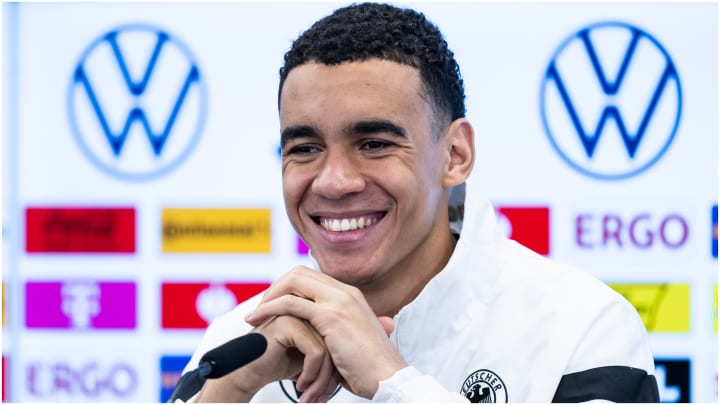
Musiala: "Win games and keep making advances"
Jamal Musiala continues to become ever more crucial to FC Bayern München and wants to carry on his good recent form at international level in Germany’s final two group games of the current Nations League campaign.
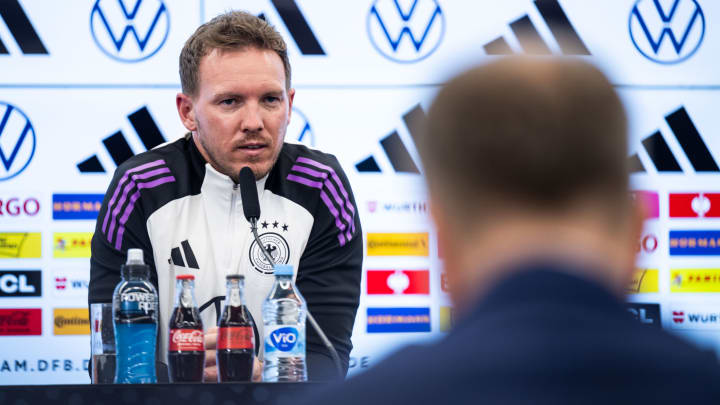
Nagelsmann: "Preserve the excitement the fans feel towards the players"
Head coach Julian Nagelsmann spoke during a press conference about the final two Nations League matches against Bosnia and Herzgovina on Saturday (20:45 CET), and Hungary on the following Tuesday (20:45 CET).
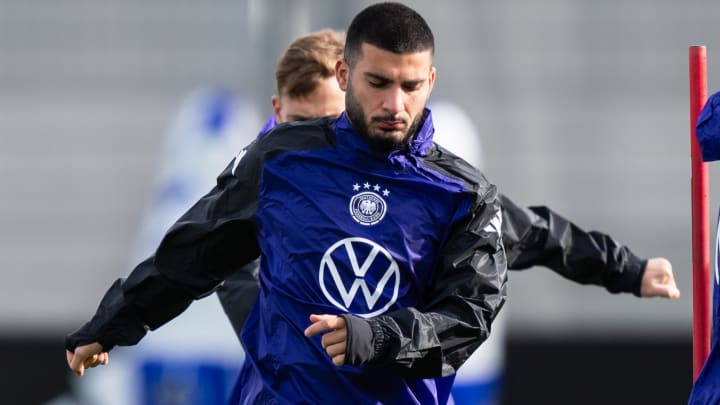
Sané replaces Undav in Germany squad
Deniz Undav will not join up as planned with the Germany squad at the DFB Campus in Frankfurt on Monday due to a hamstring strain. On Sunday ahead of the upcoming UEFA Nations League matches, Nagelsmann called up FC Bayern’s Leroy Sané in his place.
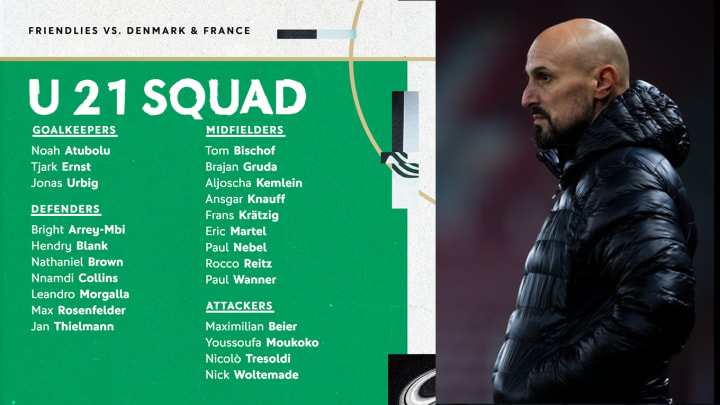
Collins, Bischof and Kemlein receive first U21s call up
Head coach Antonio Di Salvo has named his 23-man squad for the upcoming U21s friendlies against Denmark and France.
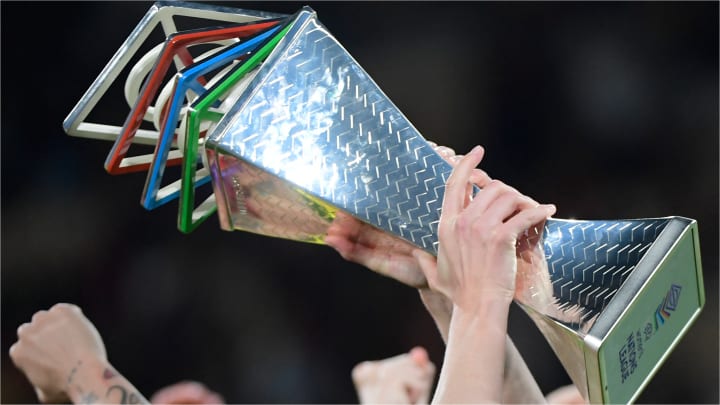
Germany drawn against Netherlands, Austria and Scotland in the Women's Nations League
The Germany women's national team will come up against the Netherlands, Austria and Scotland in Group 1 of League A in the 2025 UEFA Women's Nations League.
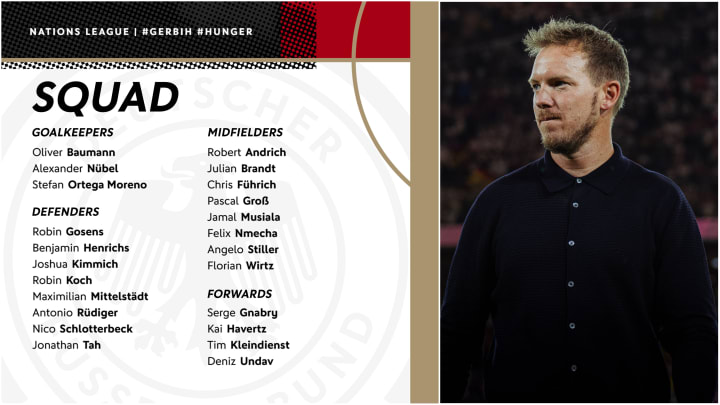
Ortega Morena receives first Germany call-up, Brandt and Nmecha return
Germany head coach Julian Nagelsmann has announced his squad for the final two Nations League group stage matches against Bosnia and Herzegovina and Hungary.
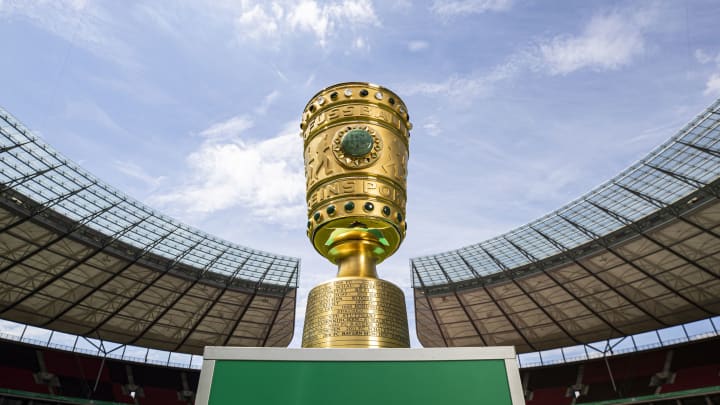
FC Bayern to face Bayer Leverkusen in DFB-Pokal round of 16
16 teams remain in contention to lift the DFB-Pokal this season, with the draw for the next round having been conducted on Sunday, 3rd November.
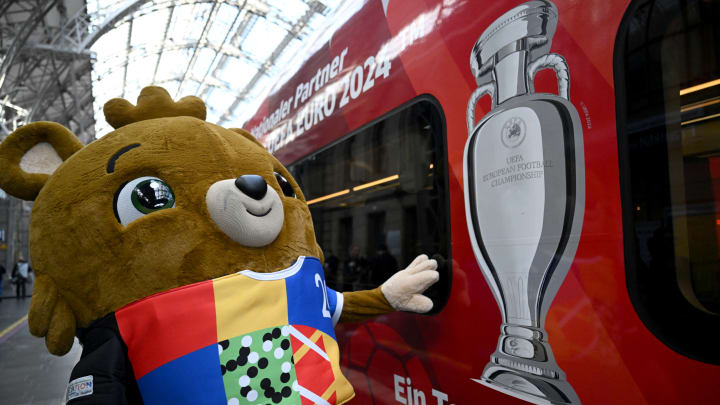
UEFA EURO 2024 champions sustainability and social responsibility in football
The UEFA EURO 2024 Environmental, Social and Governance Report showcases the results of a €29.6m investment in sustainability and data-driven approach

Bielefeld stun Union Berlin, Bayern dominate in Mainz
Third-tier Arminia Bielefeld shocked Bundesliga side 1. FC Union Berlin with a 2-0 win in the final batch of second-round ties, and were joined in the round of 16 on Wednesday night by FC Bayern München, TSG Hoffenheim and Darmstadt 98.
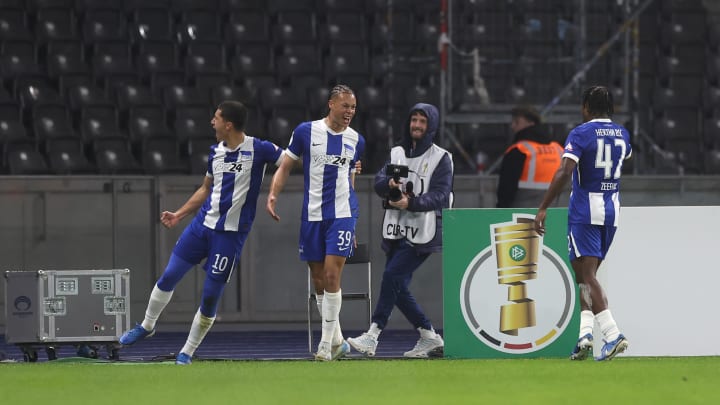
Hertha triumph against Heidenheim
Hertha BSC, SC Freiburg, SV Werder Bremen and Eintracht Frankfurt became the latest sides to advance to the round of 16 of the DFB-Pokal on Wednesday evening.
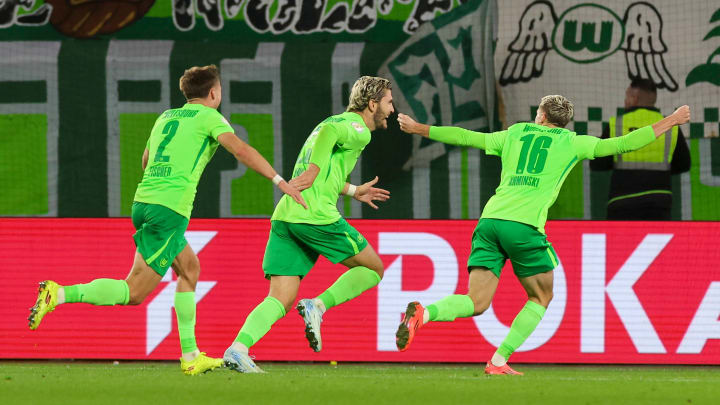
Wolfsburg into last 16 with 1-0 win over Dortmund
VfL Wolfsburg won 1-0 (a.e.t.) against Borussia Dortmund in the 19:45 CET kick-off slots of the DFB-Pokal second round, whilst VfB Stuttgart claimed a 2-1 victory against 1. FC Kaiserslautern to secure their place in the round of 16.
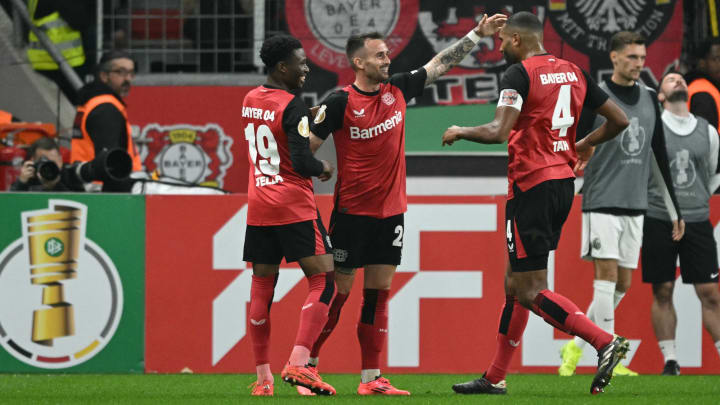
Defending champions Leverkusen through to last 16
Current DFB-Pokal holders Bayer Leverkusen won 3-0 in their second-round tie against SV Elversberg, and were joined in the last 16 by RB Leipzig, Karlsruher SC and FC Augsburg in Tuesday evening's early kick-offs.
.jpg%3F1730139552)
Germany suffer narrow defeat on Popp’s farewell
The Germany women’s national team fell to their first defeat in their second match under head coach Christian Wück. Despite taking an early lead through Cerci (5’), the hosts ultimately lost 2-1 to goals from Cooney-Cross (39’) and Hunt (77').
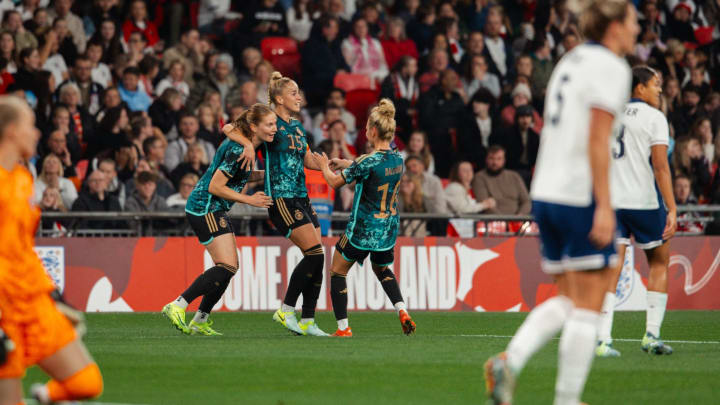
Germany win 4-3 thriller at Wembley in dream start for Wück
In a nail-biting showdown, the Germany Women’s national team claimed a 4-3 victory over European champions England, giving Christian Wück a memorable debut as head coach.
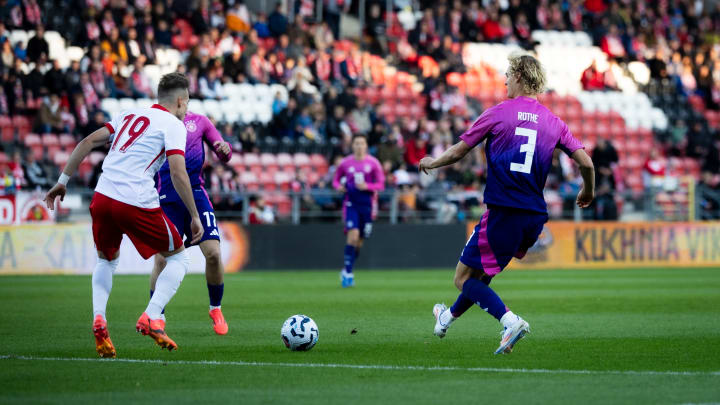
U21s draw 3-3 with Poland
The Germany U21 national team drew 3-3 with Poland in their first match since securing qualification for the European Championship finals.
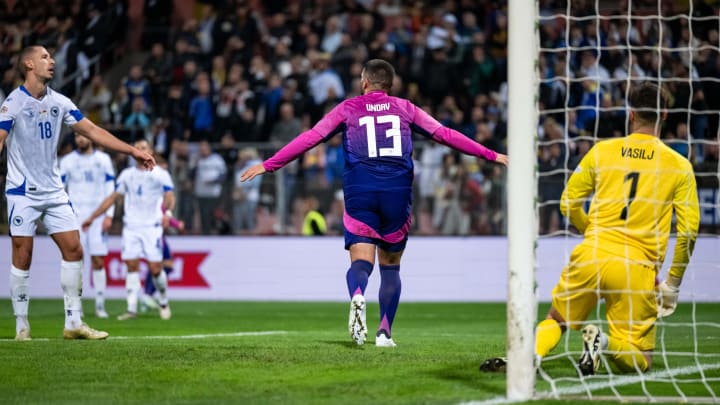
Undav fires Germany to victory in Bosnia and Herzegovina
The Germany national team overcame their tricky away trip to Bosnia and Herzegovina on Friday night, running out 2-1 winners at the Bilino Polje Stadium in Zenica.
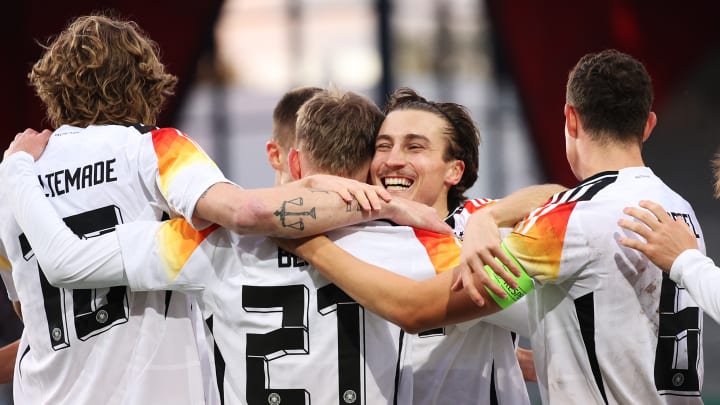
U21s book their spot at the EURO 2025 with win over Bulgaria
Germany’s U21 national team secured their place at the 2025 European Championship in Slovakia with a hard-fought 2-1 victory over Bulgaria in Regensburg.
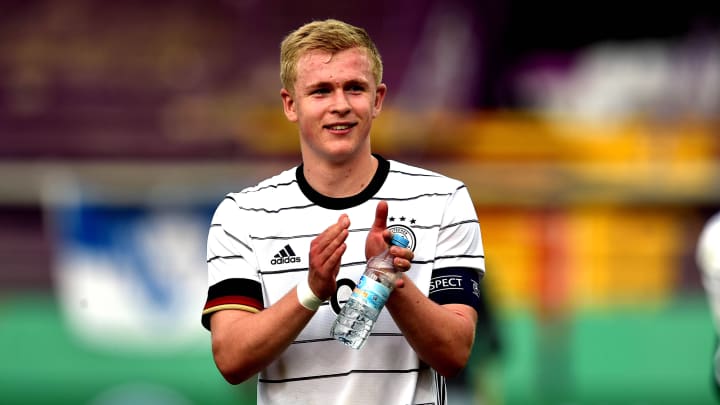
Burkardt called up in place of Havertz
Jonathan Burkardt has received his first senior call-up.
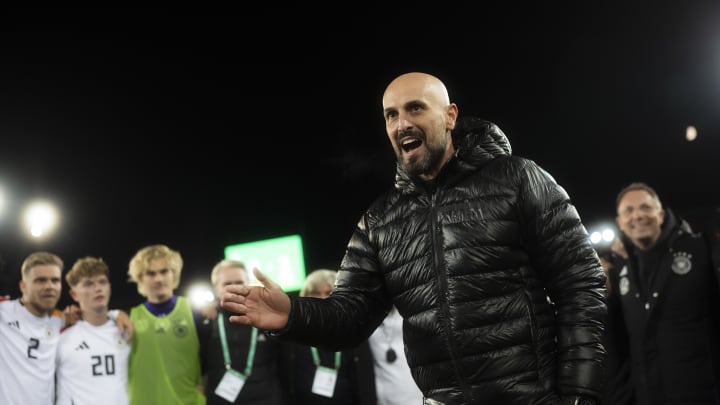
Blank and Wanner come into the squad for the final EUROS qualifiers
Antonio Di Salvo’s 23-man squad for the matches against Bulgaria and Poland.
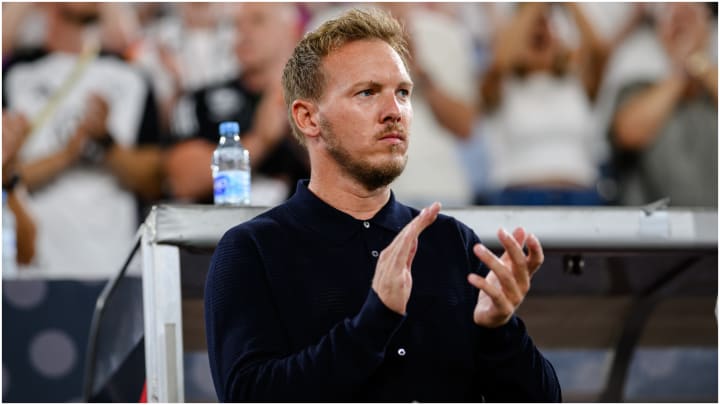
Three return as one gets his first call-up
The Germany national team squad for the two upcoming Nations League matches will contain three returning players as well as one who is receiving his first call-up.
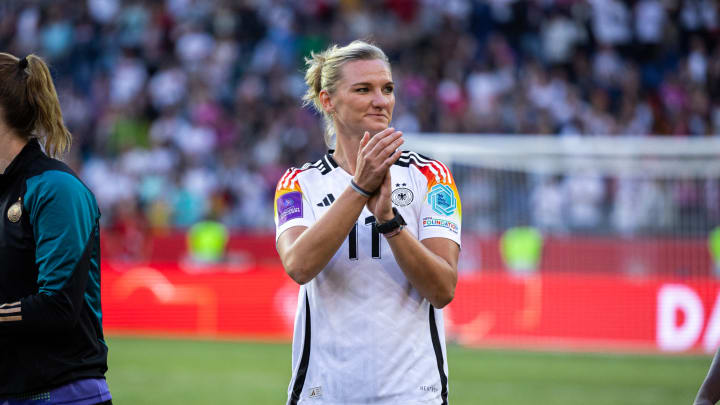
Popp ends national team career
On 28th October of this year, Alexandra Popp will return to the Schauinsland-Reisen-Arena in Duisburg to take to the pitch in Germany colours for a 145th and final time.
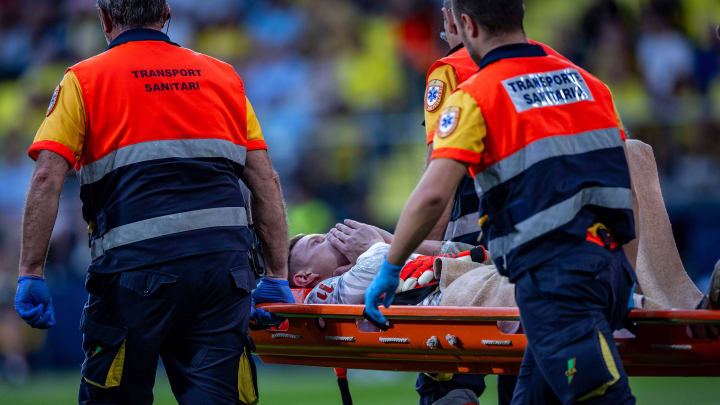
Nagelsmann: “Ter Stegen’s injury is a bitter pill to swallow”
Following Marc-André ter Stegen's knee injury, head coach Julian Nagelsmann, sporting director Rudi Völler and goalkeeping coach Andreas Kronenberg, who have all been in contact with the keeper, wished him a speedy recovery.
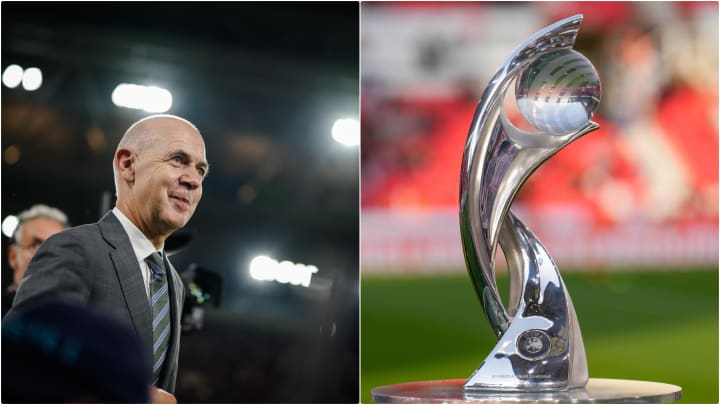
DFB to submit bid to host 2029 UEFA Women’s EUROs
The DFB will submit a bid to host the finals of the 2029 UEFA Women’s EUROs. The decision was made during a meeting of the DFB’s Presidential Board on Friday, 16th September.
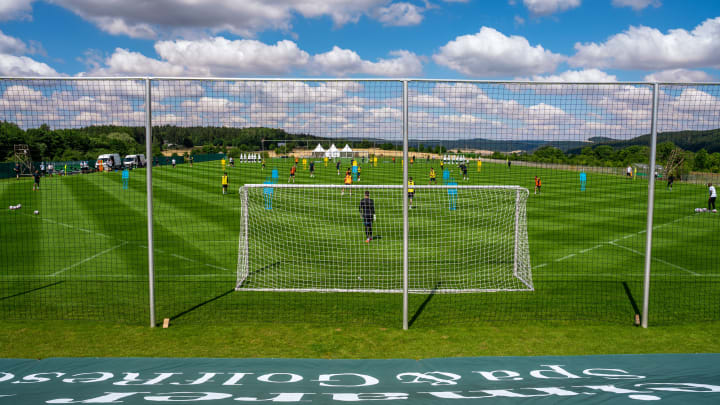
National team to hold training camp for EURO 2024 in Thuringia
The Germany national team will prepare for the home European Championship next year in Thuringia. Julian Nagelsmann’s side will hold a training camp at the Spa & GoldResort Weimarer Land from 26th to 31st May.
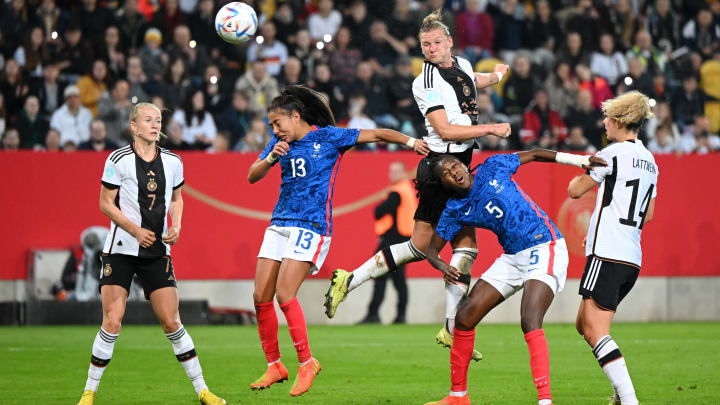
Germany women drawn away to France in Nations League semi-finals
The Germany women’s national team are set to travel to France in the semi-finals of the UEFA Nations League on Friday, 23rd February. A win will not only secure their place in the final, but also immediate qualification for the 2024 Olympic Games.
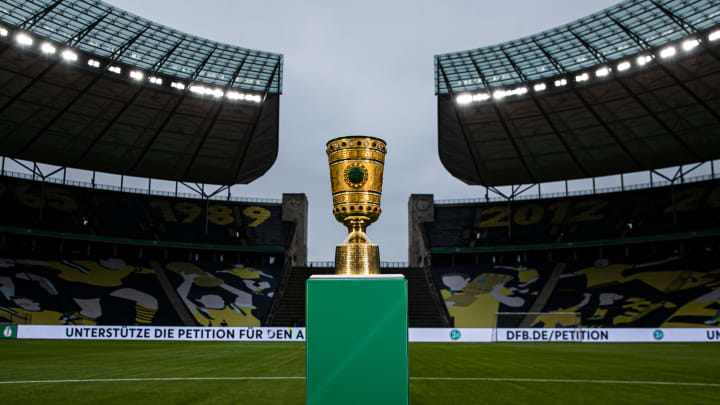
Stuttgart travel to Leverkusen, Saarbrücken to host Gladbach
Current Bundesliga front runners Bayer 04 Leverkusen are set to take on third-placed VfB Stuttgart in the quarterfinals of the DFB-Pokal. Meanwhile, 3. Liga side and dark horse 1. FC Saarbrücken will be hosting another Bundesliga team in Borussia Mönchengladbach in the final eight.


.jpg%3F1720007147)


























.jpg%3F1653759824)


